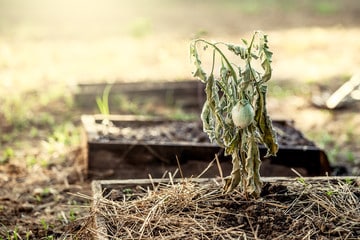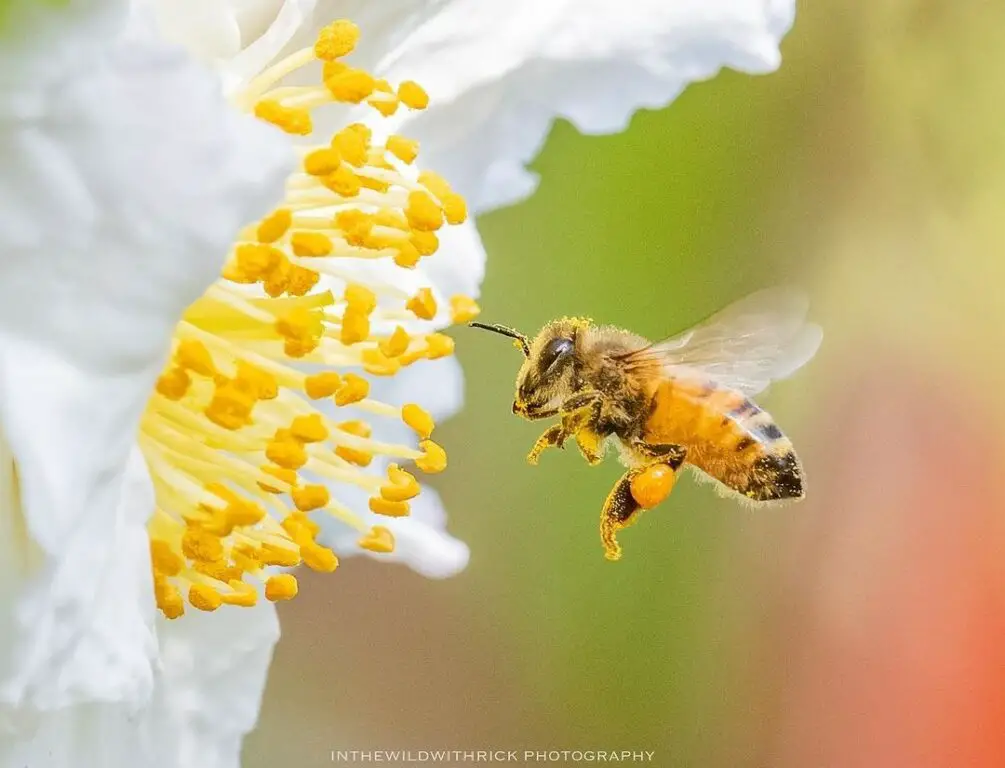This post contains affiliate links.
Welcome, fellow nature enthusiasts! As I delve into the bustling world of our striped friends, the bees, it is essential to recognize their critical role within our environment. These tiny pollinators do much more than produce honey; they are key players in maintaining biodiversity and thriving ecosystems.
In this exploration, I will unfold the multilayered importance of bees and how their diligent work supports the balance of nature, food security, and the beauty of our planet. So, let’s buzz into the fascinating intricacies of bees and discover why their survival is so intertwined with our own.
Understanding the Importance of Bees to Our Ecosystem
Bees are truly remarkable creatures, not only for the sweetness of their honey but because they play a pivotal role in the functioning of our environment. It is through the diligent work of these buzzing beings that we witness an impressive performance of ecological significance. You see, bees contribute to biodiversity by pollinating flowering trees and plants, a task that underscores the importance of bees and their tireless flights from bloom to bloom.
This importance resonates across our ecosystem, reinforcing their position at the core of a thriving habitat. Every foray a bee makes into the world, it carries out an important function in our ecosystem, harnessing the essence of life from one flower to another.
A diverse array of bee species exists, each adapted to their habitat, serving an important role in the myriad environments they inhabit. Understanding this interconnectedness is crucial for the preservation of our ecosystem. By helping flowering trees and plants to reproduce, bees bolster the pillars of biodiversity, leading to robust ecosystems filled with a wide range of wildlife.
As an enthusiast, I am constantly in awe of their importance. Whether it’s a wild meadow or a well-tended garden, the presence of bees is a tell-tale sign of ecological health. Their hard work ensures the continuity of numerous plant species, many of which are indispensable to our diets and economies.
Our understanding of these industrious pollinators needs to deepen if we’re to safeguard their role and, by extension, our planet’s health. Unfortunately, their habitat is under threat, a concern that should inspire us all to take action. As we seek to valorize the importance of these incredible insects, we’re reminded that the survival of our environment, our biodiversity, and, indeed, our very way of life hangs in the delicate balance they help to maintain.

It is an undeniable fact that without bees, our ecosystem would face profound challenges. Therefore, it is incumbent upon us to honor and protect these humble guardians of biodiversity. By recognizing the pivotal role that bees play, we can contribute to the essential task of ensuring their numbers are preserved for the health and vibrancy of our ecosystem. So let’s spread the word, nurture their habitat, and stand in solidarity with these small but mighty architects of our world.
5 Ways Bees Are Important To Our Ecosystem
- Pollination: Honey bees are crucial pollinators for a wide variety of plants, including many fruit, vegetable, and nut crops that humans rely on for food. Their pollination services are essential for the reproductive success of these plants and the production of seeds and fruits.
- Biodiversity: Honey bees contribute to the maintenance of biodiversity and the balance of ecosystems by pollinating many plant species. This ensures the survival of a diverse range of flora, which in turn provides habitat and food for numerous animal species.
- Food Chain Support: By pollinating plants, honey bees play a significant role in the food chain, supporting the diets of herbivores and omnivores and indirectly benefiting carnivores that depend on these animals as prey.
- Economic Impact: The global economy benefits immensely from the pollination services provided by honey bees, particularly in agriculture. Many crops would yield less and have higher production costs without these pollinators, leading to increased food prices and potentially less availability.
- Environmental Indicators: Honey bees can act as bio-indicators for environmental health. Changes in their health and behavior can signal issues in the ecosystem, such as pollution or climate change, prompting further investigation and conservation efforts.
Related Articles:
- The Beginner’s Guide to Backyard Beekeeping: A Beginners Guide & Tips for the Aspiring Backyard Beekeeper
- Why Beekeeping is Important for the Environment: Essential Benefits of Bees to Biodiversity
- 5 Essential Benefits of Starting Beekeeping: Best Reason to Start Backyard Beekeeping for Beekeepers
- How to Tell If Beekeeping Is Right for You: Signs You’re a Good Beekeeper
- The History of Beekeeping: A Fascinating Journey for Bees and Beekeepers
- Essential Equipment for Starting Your Hive: Beekeeping Tools & Gear | Beekeeping Equipment for Beginners
- Common Myths About Beekeeping Debunked: Beekeepers Expose Misconceptions & Bee Myths
- Understanding Bee Behavior: What New Beekeepers Must Know – Learn Honeybees and Beekeeping
What is the Role of Bees as Pollinators?
There’s a sweet spot in understanding the nature of bees when I ponder over what is their role as indispensable pollinators in our environment. Bees, buzzing tirelessly from flower to flower, are more than just producers of honey; they’re the linchpins in the pollination process that enables food crops to flourish and biodiversity to thrive.
Imagine, for a moment, a world without these eloquent creatures; our plates would look markedly different, and our ecosystems would struggle to maintain the intricate balance that supports varied forms of life.
As pollinators, bees play an essential role by transferring pollen among flowering plants, thereby ensuring the growth of seeds and fruits.
This role doesn’t just underscore their importance; it highlights a symbiotic relationship where plants and bees pollinate for mutual survival. In fact, it’s said that one out of every three bites of food we enjoy is there because a bee pollinated a food crop. Whether we’re talking about fruits, nuts, or the crops that feed our livestock, bees pollinate with an efficiency and scope unmatched by any artificial method we’ve managed to devise.
Most do not realize that the role of bees stretches beyond what immediately meets the eye. It’s not only about the direct food crops they pollinate; bees also support the growth of wild plants that serve as critical habitats for other wildlife. Thus, their role as pollinators extends to underpinning the health of broader ecosystems. The variety of plants bees pollinate helps ensure genetic diversity, which is paramount in maintaining resilience against pests and diseases.
Perhaps it’s time we viewed the bee not as a singular entity but as a collective force, one that tirelessly labors to pollinate our world. The role of bees as pollinators cannot be overstated. They’re the unsung heroes in the background of our daily lives, and it’s critical that we recognize the weight their wings carry, for the survival of not just their species, but of ours as well. So next time you spot a bee, pause and reflect on the mighty role it plays as a pollinator in our intricate and beautiful ecosystem.

Photo by: InTheWildWithRick
The Significance of Honey Bees in Environmental Health
When considering the vast tapestry of our environment, honeybee populations dance prominently across the ecological stage, with their role in our ecosystem firmly rooted in their proficiency as pollinators. As a dedicated beekeeping enthusiast, I’m continually mesmerized by these industrious insects.
Across diverse bee species, a common thread is woven; their habitat offers a glimpse into the health of our ecosystem. It is in their ceaseless effort, flitting from blossom to blossom, that these tiny architects uphold an important function, integral to both wild spaces and agricultural domains.
Indeed, honeybees represent key players within our environment, and as such, they’ve captured the attention and admiration of nature lovers and scientists alike. With such an emphasis on the contributions of bees, it’s clear why the term bees has become synonymous with natural sustainability.
As various bee species navigate their habitat, they ensure the propagation of numerous plants, underscoring the vital connection between bees and the blossoming world around them.
But let’s not overlook the challenges our bee populations face. Habitat loss, pesticides, and climate change are just a few of the hurdles these remarkable creatures must overcome. Protecting bees and their habitat is more than a passional plea; it’s a critical mission for maintaining the balance of our ecosystem.
It is our duty to ensure that bees, as pivotal pollinators, can thrive, for without them, the rich tapestry of our environment would unravel, and we’d be left to face stark consequences in a world bereft of their buzzing vitality.
5 Ways To Help Bees Survive Environmental Impacts
- Create and protect natural habitats: Preserving areas with native plants, undisturbed soil, and natural nesting sites such as dead wood and brush piles is vital for supporting the diverse requirements of native bee species.
- Plant native, bee-friendly vegetation: Cultivate a variety of native flowering plants that bloom throughout the growing season to provide a consistent food source for bees. Diverse and abundant plant life supports a rich bee community.
- Avoid or minimize the use of pesticides: Pesticides, especially neonicotinoids, can be harmful to bees. Using natural pest-control methods or organic farming practices can reduce the risk of harming native bee populations.
- Support ecological farming practices: Encourage and support farms that use sustainable, bee-friendly agricultural methods. These may include crop rotation, cover cropping, and reduced tillage that preserve bee habitats.
- Educate and raise awareness: Help others understand the importance of native bees through educational programs, community initiatives, and social media. Public advocacy can lead to policy changes that benefit native bee conservation.
Addressing the Importance of Protecting Native Bee Populations
When I delve into the importance of bees, I often find myself enraptured by the intricate dance between bee species and their habitat. The complexity of our environment is vastly augmented by these tiny, yet formidable creatures. As an ardent beekeeping enthusiast, I can’t emphasize enough their pivotal role within our ecosystem, particularly as pollinators.
It is this important function that sustains many plant species, and in turn, the larger ecological communities dependent on those plants. Safeguarding the bee populations is an action that reverberates positivity across our environment.
Pollinators like bees are the unsung heroes of our ecosystem. Each bee, navigating from flower to flower, is a testament to the dedicated work they undertake day-in and day-out.
The biodiversity of bee species is magnificent, from the common honeybee to the myriad of native varieties, each adapting uniquely to their niche in the environment. As guardians of their world, and subsequently ours, we must recognize the symbiotic relationship we share. Our actions influence their survival and the preservation of their habitat.
It’s not an overstatement to say that the protection of these pollinators is fundamental to our own well-being. Among the many bees that buzz within our ecosystem, bee species diversity ensures resilience against environmental changes. The reliance on bees as pollinators can’t be overstated; our very sustenance through the fruits and vegetables we enjoy hinges on their tireless efforts.
That’s why the work that goes into supporting their habitats, understanding their needs, and fostering an environment where they can thrive is an investment in the future of our planet.
Each time I encounter a bee, whether it’s meandering through a meadow or visiting my backyard garden, I am witnessing a crucial agent of life at work. Bees, so small in the grand scale, carry a weight far surpassing their diminutive size.So, I urge my fellow environmental enthusiasts, let’s continue to champion for the bees, their existence so deeply intertwined with our own, is a charge we should all embrace.
Their survival spells ours.
For more information on beekeeping, see my other articles on beekeeping.
Frequently Asked Questions
Q: Why are bees so important to the ecosystem?
A: Bees are vital pollinators, playing a critical role in the growth of seeds and fruits by transferring pollen among flowering plants. This not only maintains biodiversity but also supports the broader ecosystems by aiding the growth of wild plants that provide habitats for other wildlife. Essentially, bees help ensure genetic diversity and resilience within natural habitats, making them indispensable for ecological health and food security.
Q: Can you describe some of the challenges bees are currently facing?
A: Unfortunately, bees are facing numerous challenges including habitat loss, the widespread use of pesticides, and climate change. These factors are threatening bee populations and, as a result, the health of ecosystems that rely on their pollination. Protecting bees and addressing these challenges are crucial for the continuation of their species and the balance of our environment.
Q: What can we do to help protect and support bee populations?
A: To help protect bees, we can create and preserve their habitats by planting bee-friendly flowers and reducing pesticide use. Supporting local beekeepers and advocating for policies that protect pollinators are also effective. Additionally, raising awareness about the importance of bees can encourage more people to take action in safeguarding these essential creatures.
Q: How do bees contribute to our food supply and agriculture?
A: Bees are instrumental in the pollination of many crops that make up a significant portion of our diet, such as fruits, nuts, and vegetables. With every third bite of food we eat being a result of pollination by bees, they are also vital for the plants that feed livestock. Without bees, our food diversity and availability would suffer tremendously.
Q: Apart from honey, do bees have other unique roles or products?
A: Beyond honey, bees produce several other valuable substances like beeswax, royal jelly, and propolis, each having unique applications. Additionally, their role as pollinators extends beyond human benefits, supporting wild plant growth and the continuation of various animal species. They are also important indicators of ecological health.
Thank You For Your Interest
Paying It Forward
Backyard Visitors participates in affiliate programs which compensate us for referring traffic.

